
Blanca E. Himes, PhD, ATSF, FAMIA
Dr. Himes’ work focuses on using biomedical informatics approaches to study asthma and other complex traits. Dr. Himes began asthma genetics and pharmacogenetics research by participating in genome-wide association studies […]

Zhi Huang, PhD
Dr. Huang is an Assistant Professor of Pathology and Laboratory Medicine, with a secondary appointment in the Department of Biostatistics, Epidemiology, and Informatics at the University of Pennsylvania Perelman School of Medicine. […]

New Framework for Health Policy Evaluation: Target Trial Emulation Enhances Accuracy in Nonexperimental Studies
In Annals of Internal Medicine, Nicholas Seewald, PhD, introduces a framework for target trial emulation, enabling researchers to evaluate health policies with the rigor of clinical trials in nonexperimental studies.

Sharon Xiangwen Xie, PhD
Dr. Xie’s current research goals are twofold. First, she continues to develop new statistical methods for survival analysis, missing data, measurement error problems, high dimensional data, biomarker evaluations, and longitudinal […]

Mary E. Putt, PhD, ScD
Dr. Putt is a translational scientist, whose goal is to both bring state-of-the-art statistical methodologies to the design and analysis of biomedical research studies, and to adapt/develop methodologies to meet […]

Enrique Schisterman, PhD
Dr. Schisterman is a national leader in reproductive epidemiology and epidemiological methods. His complementary training in epidemiology and statistics has enabled him to improve study designs; to fuel new methods; […]

Nicholas J. Seewald, PhD
Nicholas J. Seewald, PhD is an Assistant Professor in the Department of Biostatistics, Epidemiology and Informatics in the Perelman School of Medicine at the University of Pennsylvania. Previously, Dr. Seewald […]

Vincent Lo Re III, MD, MSCE
Dr. Lo Re is an infectious diseases physician and clinical epidemiologist whose areas of interest include epidemiology of hepatitis B virus (HBV) and hepatitis C virus (HCV) infections, HIV-viral hepatitis […]

Qi Long, PhD
Dr. Long’s research program bridges novel statistical and ML/AI research and impactful biomedical research. Its thrust is to develop robust statistical and ML/AI methods and models for advancing precision medicine […]

Nandita Mitra, PhD
Dr. Mitra’s primary research interests include the design and analysis of observational studies, causal inference, and statistical approaches for cost-effectiveness analysis. She has developed doubly robust approaches to estimation of […]

Jeffrey S. Morris, PhD
In addition to his professorial role, Dr. Morris serves as Director of the Division of Biostatistics. His research interests focus on developing quantitative methods to extract knowledge from biomedical big […]

Jin Jin, PhD
Dr. Jin’s research focuses on developing statistical methods and computational tools to address cutting-edge problems in public health and medicine by integrating large-scale, multi-source datasets. Her research areas include health […]

Bonnie Ky, MD, MSCE
Dr. Ky’s research interests center on translational cardiovascular epidemiology and focus particularly on novel signaling pathways and mechanisms in human heart failure, cardiac remodeling, and cancer therapy cardiotoxicity. Her current […]

Michael Z. Levy, PhD
Dr. Levy works at the interface of epidemiology, ecology, and statistics to understand and control vector-borne and other infectious diseases. For over two decades he has focused his research on […]

Wensheng Guo, PhD
Dr. Guo joined the Biostatistics faculty at the University of Pennsylvania in 1998, and was promoted to Professor of Biostatistics in 2010. He was elected as ASA fellow in 2010 […]

Michael Harhay, PhD, MPH
Dr. Michael Harhay specializes in the statistical design, analysis, and interpretation of large randomized trials and cohort studies. He has been formally involved in >20 randomized trials to date in […]

John H. Holmes, PhD, FACE, FACMI, FIAHSI
John H. Holmes, PhD, is Professor of Medical Informatics in Epidemiology at the University of Pennsylvania Perelman School of Medicine. He is the Associate Director for Medical Informatics at the […]

Phyllis A. Gimotty, PhD
Dr. Gimotty’s research focuses on statistical methods and their applications in cancer translational research, prevention and control, and risk assessment. She has served as the biostatistics core director for the […]

Jinbo Chen, PhD
Dr. Jinbo Chen is Professor of Biostatistics in the Department of Biostatistics, Epidemiology & Informatics at the University of Pennsylvania Perelman School of Medicine. Her research focuses on statistical methods […]

Yong Chen, PhD
Dr. Yong Chen is Professor of Biostatistics at Department of Biostatistics, Epidemiology, and Informatics (DBEI), and a Senior Scholar at Center for Clinical Epidemiology & Biostatistics (CCEB) at the University […]

John T. Farrar, MD, PhD
Dr. Farrar has been involved in clinical research for more than 30 years, with a major focus on the study of the efficacy of pain therapeutics and on novel methodology […]

Rui Feng, PhD
Ongoing Methodological Research: Dr. Feng’s current research focuses on exploring and improving the potential of deep learning methodologies, for structured input variables in biomedical research. Her recent development of the […]

Richard Aplenc, MD, PhD, MSCE
Dr. Aplenc is a Professor of Pediatrics in the Department of Pediatrics with a secondary appointment in the Department of Biostatistics, Epidemiology and Informatics. His research focus is in pediatric […]

Brielin Brown, PhD
Brielin C. Brown is an Assistant Professor of Informatics and Genetics in the Perelman School of Medicine who is broadly interested in the development and application of statistical and computational […]

Ricardo Castillo, PhD, DVM, MSPH
Dr. Castillo’s work focuses on the development and application of innovative epidemiological methods to understand, control, and eliminate infectious diseases. He conducts research on zoonotic diseases in Latin America where […]

Pilot Grant Awards for 2023-2024
The Community Engagement and Research Core (CEAR) at the University of Pennsylvania has awarded pilot grant funding for 2023-2024. Two projects were selected to receive funding through the CEAR Pilot […]

New Built Environment Assessment Training
The Built Environment Assessment Training (BEAT) Institute grew out of the recognition that environmental and policy changes are some of the most promising strategies for controlling obesity and improving diet […]

Healthy Eating study chosen as one of Penn Med’s top health equity initiatives
The poster presenting the results from the healthy eating study conducted by Karen Glanz, PhD, MPH; Amanda Fultz, PhD, RDN; Yolande Goncalves, MPH; Pui Kwong, MPH; and Christina Roberto, PhD., […]
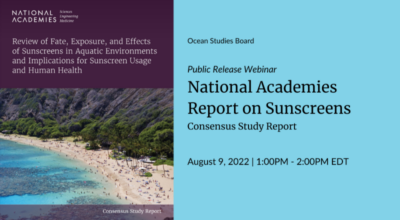
Ocean Studies Board releases sunscreen report – August 9, 2022
The National Academies held a public release webinar of a new report on Tuesday, August 9 from 1:00pm to 2:00pm EDT. The report, Review of Fate, Exposure, and Effects of Sunscreens in Aquatic […]
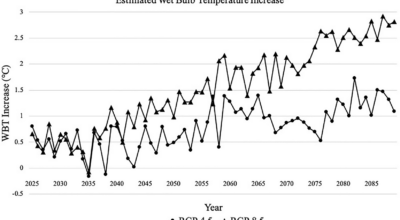
With Climate Change, More Cases of Kidney Stones
In addition to making events such as catastrophic flooding more frequent, climate change will negatively affect human health in many other ways. Prior research has demonstrated, for instance, that high […]

Leveraging machine learning predictive biomarkers to augment the statistical power of clinical trials with baseline magnetic resonance imaging
A key factor in designing randomized clinical trials is the sample size required to achieve a particular level of power to detect the benefit of a treatment. Sample size calculations […]
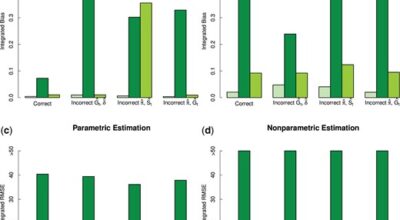
New Working Paper on Nonparametric Instrumental Variable Estimators
Doubly robust nonparametric instrumental variable estimators for survival outcomes Youjin Lee, Edward H Kennedy, Nandita Mitra Instrumental variable (IV) methods allow us the opportunity to address unmeasured confounding in causal […]
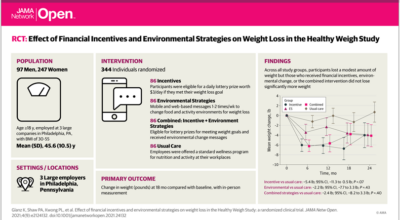
Achieving a Healthy Weight: More Intensive and Tailored Individual Strategies May Be Best
Given rising rates of obesity in the U.S. and the many associated health problems, researchers have tested various strategies for weight loss. Both financial incentives and environmental changes — such […]
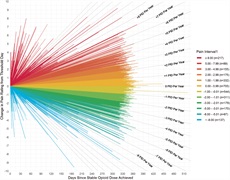
Patients with Chronic Non-Cancer Pain: Adding to the Options for Relief
While many studies have looked at how to limit patients to a short course of opioids, few have examined the other side of the issue: Are there some patients for […]

New Working Paper on Job Vacancies and Immigration
Job Vacancies and Immigration: Evidence from the Mariel Supply Shock L. Jason Anastasopoulos, George J. Borjas, Gavin G. Cook, and Michael Lachanski We use the Conference Board’s Help-Wanted Index (HWI) […]

New Working Paper on Unmeasured Confounding and Time
Controlling for Unmeasured Confounding in the Presence of Time: Instrumental Variable for Trend Ting Ye, Ashkan Ertefaie, James Flory, Sean Hennessy, Dylan S. Small Unmeasured confounding is a key threat […]

New Working Paper on Bayesian Nonparametric Cost-Effectiveness Analyses
Bayesian Nonparametric Cost-Effectiveness Analyses: Causal Estimation and Adaptive Subgroup Discovery Arman Oganisian, Nandita Mitra, Jason Roy Cost-effectiveness analyses (CEAs) are at the center of health economic decision making. While these […]

New Working Paper on a non‐parametric projection‐based estimator for the probability of causation
A non‐parametric projection‐based estimator for the probability of causation, with application to water sanitation in Kenya Maria Cuellar and Edward H. Kennedy Current estimation methods for the probability of causation […]
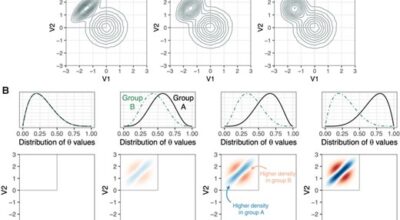
A local group differences test for subject-level multivariate density neuroimaging outcomes
A great deal of neuroimaging research focuses on voxel-wise analysis or segmentation of damaged tissue, yet many diseases are characterized by diffuse or non-regional neuropathology. In simple cases, these processes […]
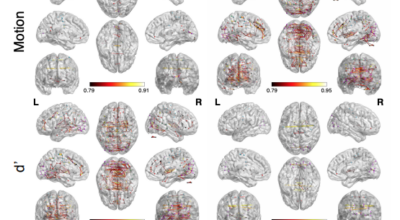
Robust Spatial Extent Inference with a Semiparametric Bootstrap Joint Inference Procedure
Spatial extent inference (SEI) is widely used across neuroimaging modalities to adjust for multiple comparisons when studying brain-phenotype associations that inform our understanding of disease. Recent studies have shown that […]

New working paper on causal inference with zero-inflated outcomes
A Bayesian Nonparametric Model for Zero-Inflated Outcomes: Prediction, Clustering, and Causal Estimation Arman Oganisian, Nandita Mitra, and Jason Roy Researchers are often interested in predicting outcomes, conducting clustering analysis to […]

New working paper on differences-in-differences
Patterns of Effects and Sensitivity Analysis for Differences-in-Differences Luke J. Keele, Dylan S. Small, Jesse Y. Hsu, and Colin B. Fogarty Applied analysts often use the differences-in-differences (DID) method to […]
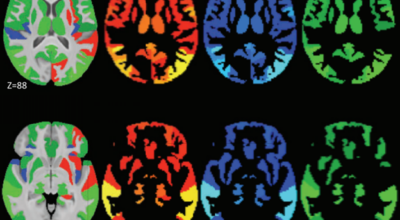
Faster family-wise error control for neuroimaging with a parametric bootstrap
In neuroimaging, hundreds to hundreds of thousands of tests are performed across a set of brain regions or all locations in an image. Recent studies have shown that the most […]

Interpretable High-Dimensional Inference Via Score Projection With an Application in Neuroimaging
In the fields of neuroimaging and genetics, a key goal is testing the association of a single outcome with a very high-dimensional imaging or genetic variable. Often, summary measures of […]

New Working Paper on Effect Modification
A new, powerful approach to the study of effect modification in observational studies Kwonsang Lee, Dylan S. Small, Paul R. Rosenbaum Effect modification occurs when the magnitude or stability of […]

New Publication on Trend-in-Trend Design
The Trend-in-Trend Research Design for Causal Inference. Ji X, Small DS, Leonard CE, Hennessy S. Cohort studies can be biased by unmeasured confounding. We propose a hybrid ecologic-epidemiologic design called […]

New Publication on Second Control Groups
Constructed Second Control Groups and Attenuation of Unmeasured Biases Samuel D. Pimentel, Dylan S. Small & Paul R. Rosenbaum The informal folklore of observational studies claims that if an irrelevant […]

New Publication on Sensitivity Analysis
An adaptive Mantel-Haenszel test for sensitivity analysis in observational studies. Rosenbaum PR, Small DS In a sensitivity analysis in an observational study with a binary outcome, is it better to […]

New Publication on Propensity Scores
An evaluation of bias in propensity score-adjusted non-linear regression models Fei Wan, Nandita Mitra Propensity score methods are commonly used to adjust for observed confounding when estimating the conditional treatment […]